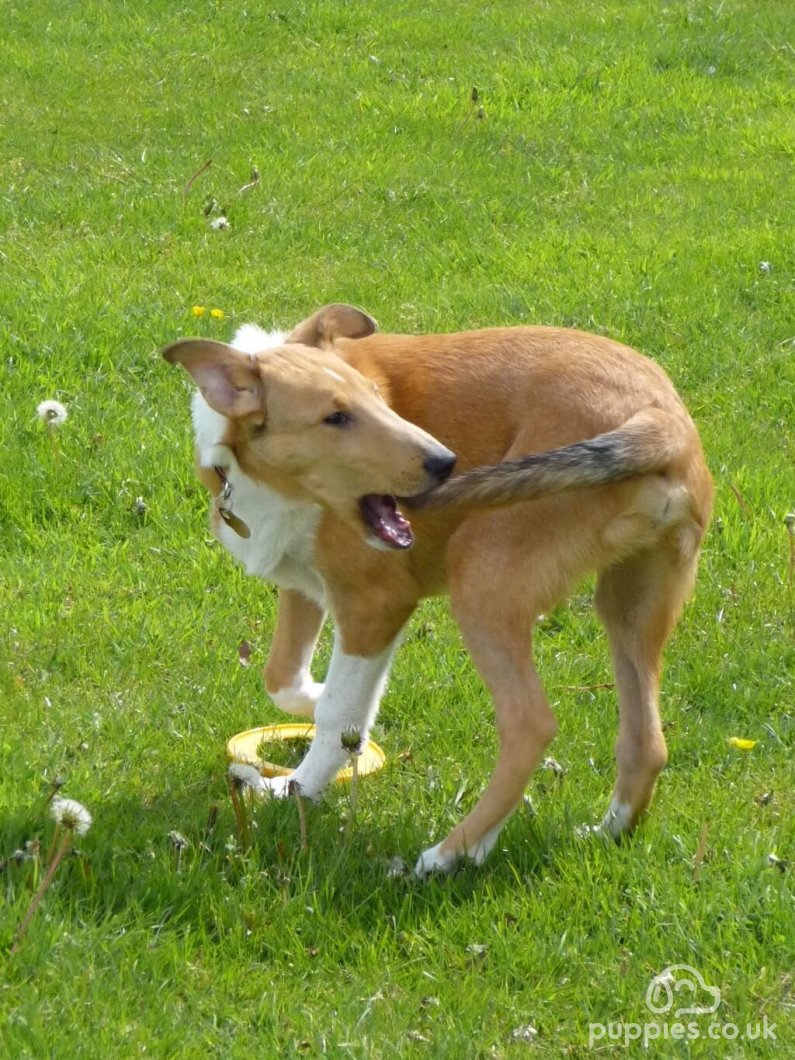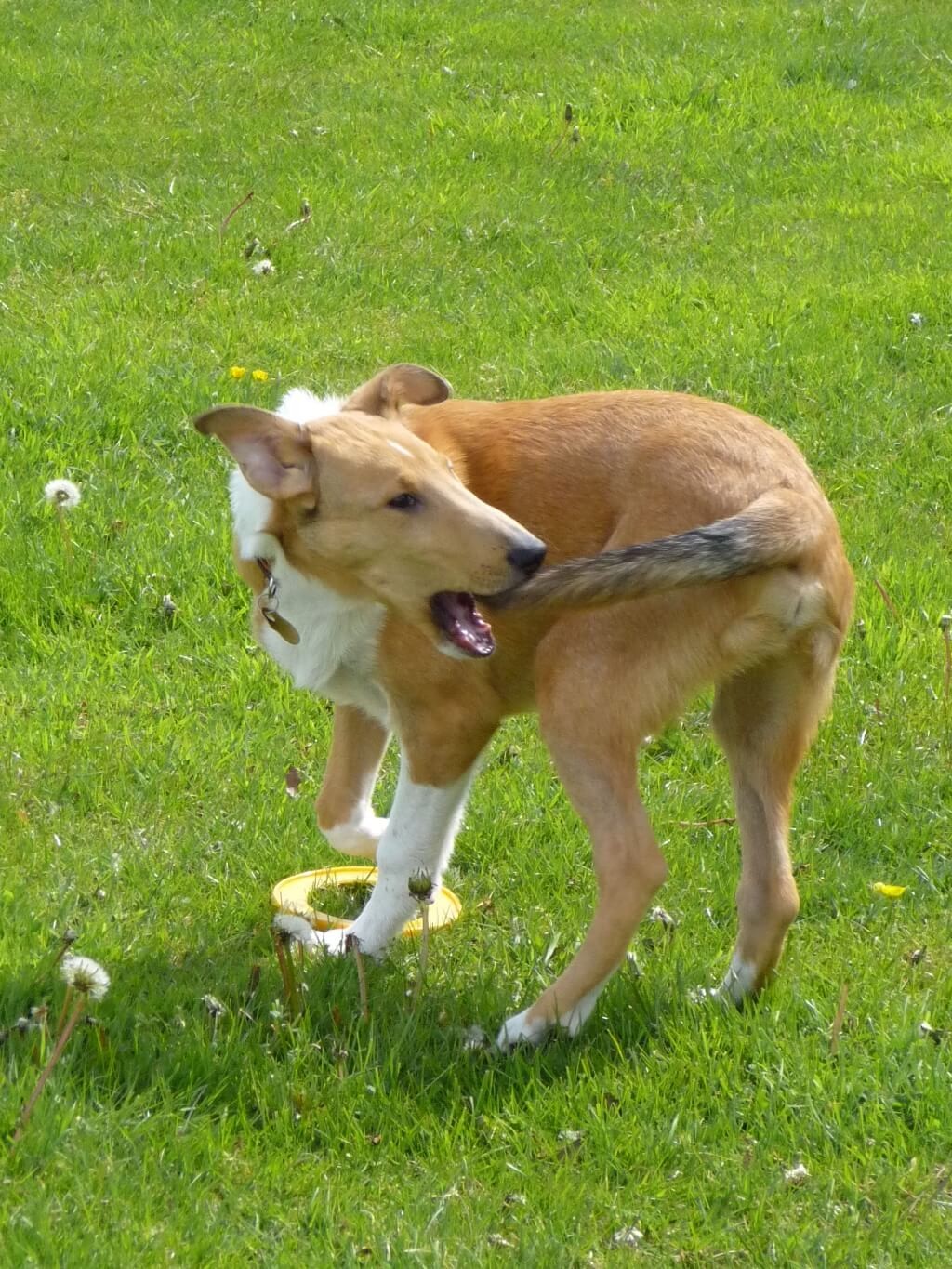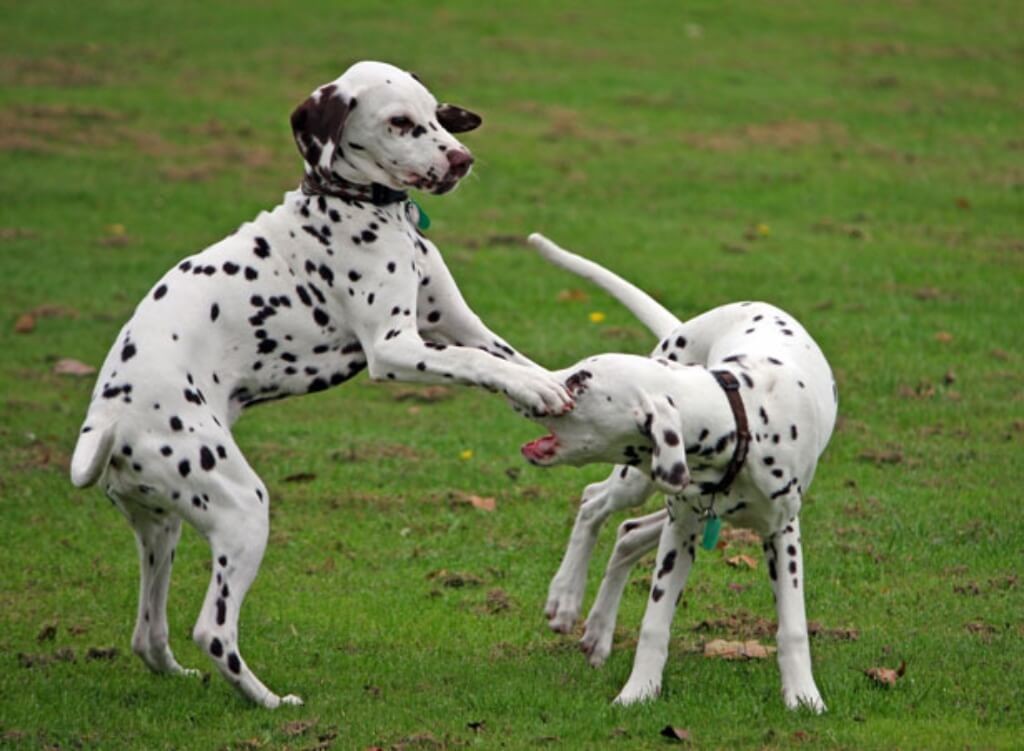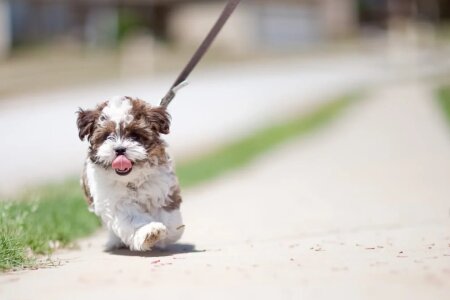Why Do Dogs Chase Their Tails? 5 Common Reasons

Dogs occasionally chase their tails as part of a playful game, especially when they are puppies. It is amusing to watch as they spin around trying to catch their own tail. However, it’s not always for fun and there may be a more serious reason behind the behaviour.
If your dog chases their tail obsessively or they do it suddenly it may be something that requires veterinary attention.
Reasons Dogs Chase Their Tails

Attribution 2.0 Generic (CC BY 2.0) - Lil Shepherd
1. For Fun
Puppies will often run in circles trying to catch their tail as they are playful. Young dogs see their tail as something that is fun to chase. It’s an exciting game at the time and puppies will usually grow out of this behaviour.
If you are seeing tail-chasing behaviour from an older dog it could be due to boredom and a lack of physical/ mental stimulation. The behaviour offers a way for the dog to keep themselves busy and use up some energy.
An increase in daily activity and interactive games will help stimulate and engage the dog which should stop the tail chasing behaviour.
2. For Attention
Dogs may chase their tails to try to get attention from their owners. When dogs receive attention (positive or negative) for chasing their tail, it reinforces the behaviour and the dog is more likely to chase their tail in the future when they want attention.
Dogs are very social and need lots of attention so put time aside each day to play and interact with your dog. If your dog is chasing their tail for attention, ignore them until they have stopped the behaviour so it will learn that tail chasing won’t get your attention.
3. Irritation (Such As Fleas)
One potential reason for tail chasing is itching and irritation, often caused by ticks, fleas, or other parasites. If the dog's tail is itchy they may also chew, lick, and bite it and they may have hairless patches due to this.
Any irritation will often cause the dog to suddenly chase their tail with a level of urgency as they are trying to remedy an itch or pain.
There are a range of other potential medical reasons for tail chasing including impacted glands, allergies, and neurological problems. It’s important to seek veterinary advice for diagnosis and treatment.
4. Anxiety
Just as boredom can result in tail chasing, so can anxiety. Tail chasing can develop into a repetitive behaviour that some dogs use to try to relieve stress.
Anxiety can stem from a number of causes such as isolation, being in a small living space, experiencing aggression from other animals, and being shouted at. For dogs with anxiety, tail chasing may be a coping compulsion so contact your vet and behaviourist to discuss this.
5. Compulsion
Medical conditions can cause dogs to chase their tail obsessively. It’s best to get the dog checked over by a vet as they may be experiencing pain, seizures, an infection, or another health issue.
Some dogs suffer from Obsessive Compulsive Disorder (OCD) and tail chasing could become a compulsive habit for them.
Dogs With OCD

CC0 1.0 Universal (CC0 1.0) Public Domain Dedication - Karen Arnold
Dogs with OCD often chase and chew their tails. When the behaviour is compulsive it is happening so frequently that it starts to interfere with the dog’s quality of life. If your dog is chasing or biting its tail frequently and you cannot stop the behaviour, contact your vet for advice.
A vet will examine your dog's physical and mental health to ensure they are healthy and do not have any underlying issues that could be causing the behaviour. They may also prescribe medicine to help decrease anxiety.
Medication can only help with part of the issue so it needs to be paired with behavioural modifications to help stop the compulsive behaviour. With support, compulsive behaviours can be made more manageable.
When To Be Concerned About Tail Chasing
Tail chasing can be entertaining but if your dog is chasing its tail frequently or has injured its tail by excessively biting it then contact your vet. There may be an underlying issue that is causing the behaviour. Getting to the root cause of the problem will help put a stop to it before it becomes a habit.
Want To Know More?
Understanding your dog’s behaviour can tell you a lot about its health and well-being. Take a look at our articles about why dogs howl and why dogs lick you to better understand your canine companion.
If you’re looking for a new dog, use Puppies to find a puppy from a reputable breeder.












